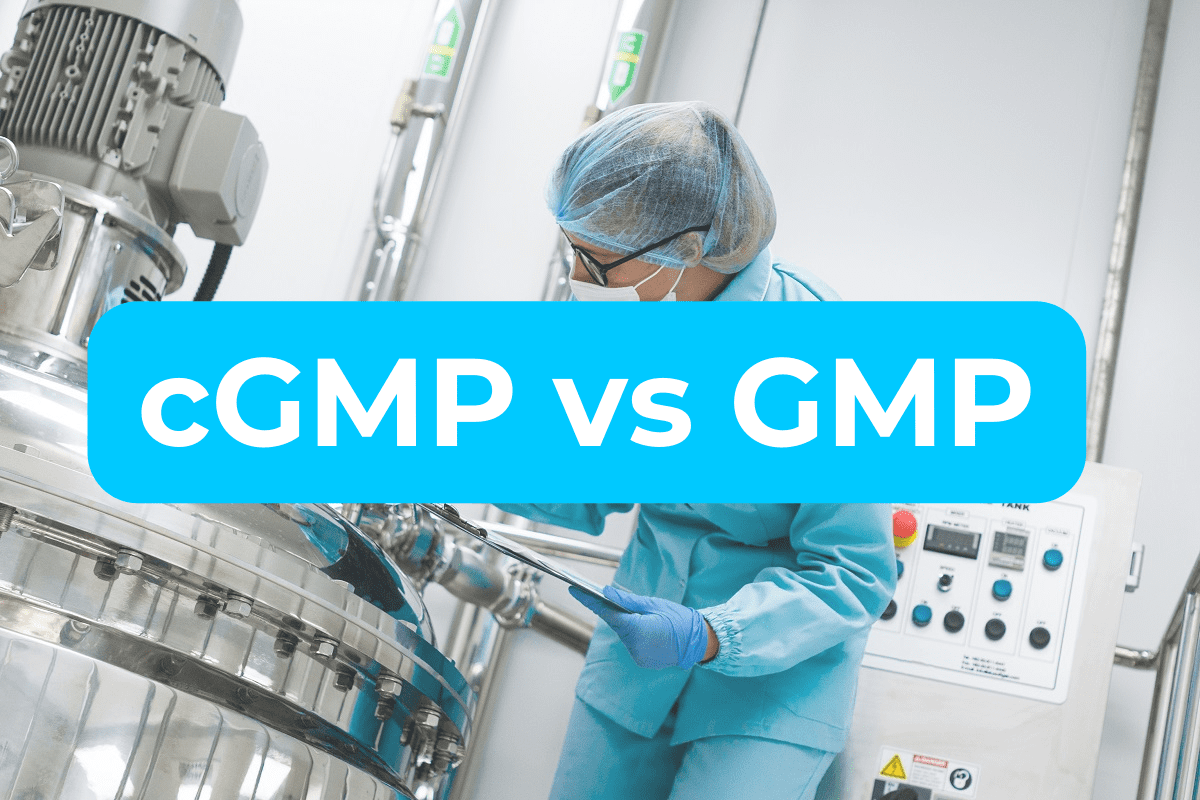
It’s important for companies to follow the GMP guidelines when manufacturing new products. These guidelines ensure that everything is done cleanly and that every utensil and surface used is up to specific standards.
By following the GMP guidelines, the entire process, from record keeping to packaging, is done correctly and precisely. In addition, every employee involved in the process must have the proper credentials to take part in the production.

The difference between GMP and cGMP is that cGMP guarantees that every step of the production process is done under the guidelines of GMP and is finished in the most current manner available.
This is why the “c” is added to cGMP. GMP regulations are constantly being updated with new technology to improve the cleanliness and neatness of the process. cGMP mostly uses newer, more innovative technology, which can make it more expensive than regular GMP.
Additionally, cGMP goods undergo significantly more testing, including newer, more in-depth testing. cGMP is also put in place to ensure the proper use of newly manufactured goods, making sure that the quality of the new pharmaceutical is used for exactly what it was created for.
Although the terms GMP and cGMP are somewhat interchangeable, cGMP regulations always refer to the newest technologies available at the time of production.
It’s important for companies to follow the regulations and guidelines in order to ensure the quality of their products and to prevent the misuse of pharmaceuticals.
What is cGMP?
To ensure pure and high-quality drug products, it is crucial to adhere to cGMP. This ensures proper design, monitoring and control of manufacturing processes and facilities.
To follow cGMP, pharmaceuticals and CDMOs must source high-quality raw materials, use strict quality management systems, develop and enforce comprehensive operating procedures, have protocols in place to reveal and find the source of quality deviations, and have testing practices and laboratories in place.
These formal practices can help reduce and avoid many mishaps that cause errors, contamination, deviations and failures.
By following cGMP, companies are using current or up-to-date technologies and systems to meet federal regulations, and following the most recent GMP regulations.
What is GMP?
When it comes to drug manufacturing, it’s important to have processes in place that reduce the risk of contamination, adulteration, and mislabeling.
Two sets of guidelines that help achieve these goals are cGMP and GMP. While both aim to ensure quality, cGMP is focused on incorporating the latest standards and technologies for continuous improvement.
GMP, on the other hand, are more flexible and considered a set of principles that manufacturers can use to develop their own processes for ensuring quality. Manufacturers need to understand and follow these guidelines to ensure the safety and effectiveness of their products.
FDA REGULATIONS
It’s important for CDMOs and drug manufacturers to follow the FDA’s GMP regulations to ensure the safety and effectiveness of their products. To make sure these regulations are being adhered to, they receive frequent check-ins, both in-person and virtually, as well as announced and unannounced visits.
The cGMP sets minimum standards for manufacturing, processing, and packaging drug products, and when they are not followed, the FDA has the authority to recall products or deny approval for new ones.
So, it’s crucial for manufacturers to stay on top of these regulations to keep patients safe and ensure the success of their products.
Also Read:
by admin
I am a seasoned GxP expert and the founder and CEO of GxP Cellators, a consulting firm that provides GxP advisory and auditing services to clients across the globe. My mission is to help clients achieve excellence in quality, compliance, and remediation, and to foster a robust quality culture in their organizations.


